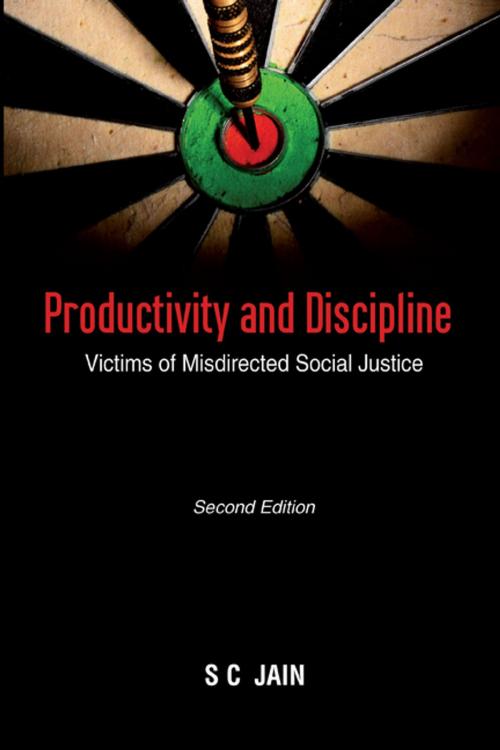Productivity and Discipline: Victims of Misdirected Social Justice
Victims of Misdirected Social Justice
| Author: | Mr S C Jain | ISBN: | 9789385714269 |
| Publisher: | KW Publishers | Publication: | December 15, 2014 |
| Imprint: | KW Publishers | Language: | English |
| Author: | Mr S C Jain |
| ISBN: | 9789385714269 |
| Publisher: | KW Publishers |
| Publication: | December 15, 2014 |
| Imprint: | KW Publishers |
| Language: | English |
This is the first book of its kind in which an attempt has been made to brain-scan some of the judgments of the Supreme Court as well as of various high courts and then to link up the results with the objectives of planned development as enumerated in successive Five-Year Plans. The results of this clinical experiment reveal that the entire Industrial Jurisprudence evolved thus far is based on the concepts of Social Justice, Industrial Peace and Job Security. But in practice, Social Justice has promoted inequality, Industrial Peace has failed to accelerate productive activities of the country for the benefit of the community, and Job Security has promoted indiscipline and inefficiency. There is a powerful appeal to the judiciary as a class, the Bar as a profession, the Government as an instrument, and the political echelons as power-wielders to re-examine the total approach and link up industrial jurisprudence with the objectives of planned development. It is contended in the book that wherever a judgment or award is pronounced on the grounds of Social Justice, judges and adjudicators have a duty to show that the interests of the community were borne in mind. They must remember that industrial peace is treated as relevant because it leads to more production and thereby has a healthy impact on the national economy. Job Security is treated as relevant because it would promote efficiency and discipline. In their zest to fight for their respective claims, employers and employees may choose to ignore the demand of national economy, but the judiciary cannot. At the first blush the book may appear to take sides between employers and employees, but once the concepts of Social Justice, Industrial Peace and Job Security are understood with reference to what actually happened during the last 65 years, it is bound to receive wide support and acceptance in all circles. In this edition two chapters have been added viz. Misconducts, Punishments Other Miscellaneous issues – shift from judicial activism to restraint and Judicial Discipline.
This is the first book of its kind in which an attempt has been made to brain-scan some of the judgments of the Supreme Court as well as of various high courts and then to link up the results with the objectives of planned development as enumerated in successive Five-Year Plans. The results of this clinical experiment reveal that the entire Industrial Jurisprudence evolved thus far is based on the concepts of Social Justice, Industrial Peace and Job Security. But in practice, Social Justice has promoted inequality, Industrial Peace has failed to accelerate productive activities of the country for the benefit of the community, and Job Security has promoted indiscipline and inefficiency. There is a powerful appeal to the judiciary as a class, the Bar as a profession, the Government as an instrument, and the political echelons as power-wielders to re-examine the total approach and link up industrial jurisprudence with the objectives of planned development. It is contended in the book that wherever a judgment or award is pronounced on the grounds of Social Justice, judges and adjudicators have a duty to show that the interests of the community were borne in mind. They must remember that industrial peace is treated as relevant because it leads to more production and thereby has a healthy impact on the national economy. Job Security is treated as relevant because it would promote efficiency and discipline. In their zest to fight for their respective claims, employers and employees may choose to ignore the demand of national economy, but the judiciary cannot. At the first blush the book may appear to take sides between employers and employees, but once the concepts of Social Justice, Industrial Peace and Job Security are understood with reference to what actually happened during the last 65 years, it is bound to receive wide support and acceptance in all circles. In this edition two chapters have been added viz. Misconducts, Punishments Other Miscellaneous issues – shift from judicial activism to restraint and Judicial Discipline.















